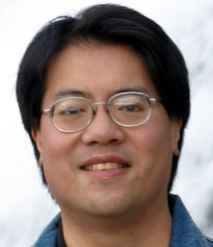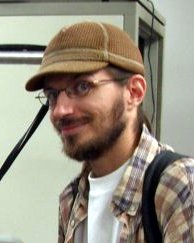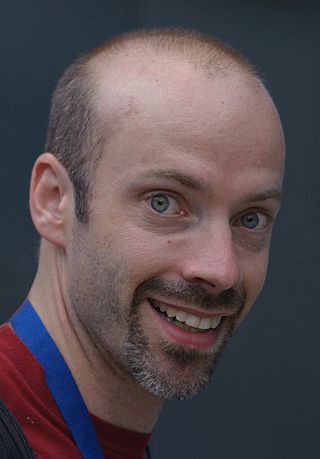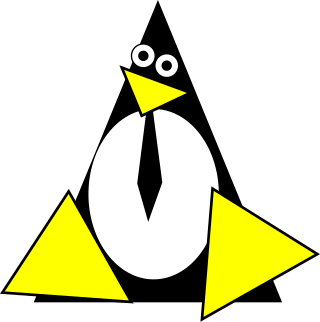BitKeeper is a software tool for distributed revision control of computer source code. Originally developed as proprietary software by BitMover Inc., a privately held company based in Los Gatos, California, it was released as open-source software under the Apache-2.0 license on 9 May 2016. BitKeeper is no longer being developed.
Reiser4 is a computer file system, successor to the ReiserFS file system, developed from scratch by Namesys and sponsored by DARPA as well as Linspire. Reiser4 was named after its former lead developer Hans Reiser. As of 2021, the Reiser4 patch set is still being maintained, but according to Phoronix, it is unlikely to be merged into mainline Linux without corporate backing.
The Linux kernel mailing list (LKML) is the main electronic mailing list for Linux kernel development, where the majority of the announcements, discussions, debates, and flame wars over the kernel take place. Many other mailing lists exist to discuss the different subsystems and ports of the Linux kernel, but LKML is the principal communication channel among Linux kernel developers. It is a very high-volume list, usually receiving about 1,000 messages each day, most of which are kernel code patches.

MontaVista Software is a company that develops embedded Linux system software, development tools, and related software. Its products are made for other corporations developing embedded systems such as automotive electronics, communications equipment, mobile phones, and other electronic devices and infrastructure.
Robert M. Love is an American author, speaker, Google engineer, and open source software developer.
Stephen C. Tweedie is a Scottish software developer who is known for his work on the Linux kernel, in particular his work on filesystems.

Theodore (Ted) Yue Tak Ts'o (曹子德) is an American software engineer mainly known for his contributions to the Linux kernel, in particular his contributions to file systems. He is the secondary developer and maintainer of e2fsprogs, the userspace utilities for the ext2, ext3, and ext4 filesystems, and is a maintainer for the ext4 file system.

David Stephen Miller is an American software developer working on the Linux kernel, where he is the primary maintainer of the networking subsystem and individual networking drivers, the SPARC implementation, and the IDE subsystem. With other people, he co-maintains the crypto API, KProbes, IPsec, and is also involved in other development work.
Linux Security Modules (LSM) is a framework allowing the Linux kernel to support without bias a variety of computer security models. LSM is licensed under the terms of the GNU General Public License and is a standard part of the Linux kernel since Linux 2.6. AppArmor, SELinux, Smack, and TOMOYO Linux are the currently approved security modules in the official kernel.

Carsten Haitzler, known as Raster or Rasterman to the open source community, is an Australian-German software engineer, best known for initiating and leading the development of the Enlightenment window manager and its libraries.

Greg Kroah-Hartman (GKH) is a major Linux kernel developer. As of April 2013 he is the Linux kernel maintainer for the -stable branch, the staging subsystem, USB, driver core, debugfs, kref, kobject, and the sysfs kernel subsystems, Userspace I/O, and TTY layer. He also created linux-hotplug, the udev project, and the Linux Driver Project. He worked for Novell in the SUSE Labs division and, as of 1 February 2012, works at the Linux Foundation.

Rusty Russell is an Australian free software programmer and advocate, known for his work on the Linux kernel's networking subsystem and the Filesystem Hierarchy Standard.
Among Linux kernel developers, the -mm tree refers to a version of the kernel source code maintained by Andrew Morton.
Linux began in 1991 as a personal project by Finnish student Linus Torvalds to create a new free operating system kernel. The resulting Linux kernel has been marked by constant growth throughout its history. Since the initial release of its source code in 1991, it has grown from a small number of C files under a license prohibiting commercial distribution to the 4.15 version in 2018 with more than 23.3 million lines of source code, not counting comments, under the GNU General Public License v2.
Timesys Corporation is a company selling Linux open source software security, engineering services, and development tools, for the embedded software market. They also help software development teams build and maintain a custom Linux platform for embedded processors from integrated circuit manufacturers such as Atmel, Freescale, Intel, Texas Instruments, and Xilinx.

OpenEZX was a project active from 2004 to 2008, which gathered information about the Linux based Motorola EZX phone platform.
The Linux Symposium was a Linux and Open Source conference held annually in Canada from 1999 to 2014. The conference was initially named Ottawa Linux Symposium and was held only in Ottawa, but was renamed after being held in other cities in Canada. Even after the name change, however, it was still referred to as OLS. The conference featured 100+ paper presentations, tutorials, birds of a feather sessions and mini summits on a wide range of topics. There were 650 attendees from 20+ countries in 2008.

The Linux kernel is a free and open-source, monolithic, modular, multitasking, Unix-like operating system kernel. It was originally written in 1991 by Linus Torvalds for his i386-based PC, and it was soon adopted as the kernel for the GNU operating system, which was written to be a free (libre) replacement for Unix.

Checkpoint/Restore In Userspace (CRIU), is a software tool for the Linux operating system. Using this tool, it is possible to freeze a running application and checkpoint it to persistent storage as a collection of files. One can then use the files to restore and run the application from the point it was frozen at. The distinctive feature of the CRIU project is that it is mainly implemented in user space, rather than in the kernel.

Smack is a Linux kernel security module that protects data and process interaction from malicious manipulation using a set of custom mandatory access control (MAC) rules, with simplicity as its main design goal. It has been officially merged since the Linux 2.6.25 release, it was the main access control mechanism for the MeeGo mobile Operating System. It is also used to sandbox HTML5 web applications in the Tizen architecture, in the commercial Wind River Linux solutions for embedded device development, in Philips Digital TV products., and in Intel's Ostro OS for IoT devices.










